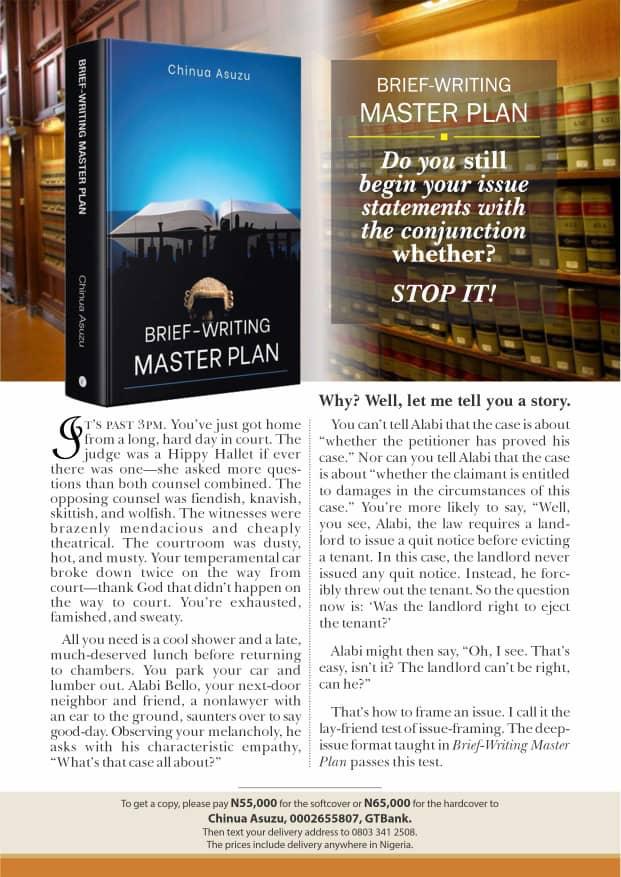“Tell the truth. Good lawyers are not liars. ‘The facts you choose to include must be absolutely accurate so your reader is firmly ensconced on your side when the argument section begins—and eagerly anticipates the case law and analysis to seal the deal.’
Submit a fat-free, not a fact-free, brief. As legal-writing teacher Eunice Park says, ‘even a whiff of disingenuousness will cause the reader to recoil with distrust.’
Never make a statement you know to be incorrect, and never make a statement you don’t know to be correct. You must therefore be honest, but that’s not good enough because you can be honestly wrong. Above mere honesty, you must be scrupulously accurate. If you’re not certain a statement is correct, don’t make it.

Inaccuracy, whether arising from deliberate misstatement or carelessness, inflicts on an advocate ‘a grave loss of credibility from which it’s difficult to recover.’
The profession of law calls for a high degree of thoroughness and detail-orientation.”
Chinua Asuzu, Brief-Writing Master Plan (Partridge, 2022), 231 (quoting and citing Eunice Park, then Scalia & Garner).